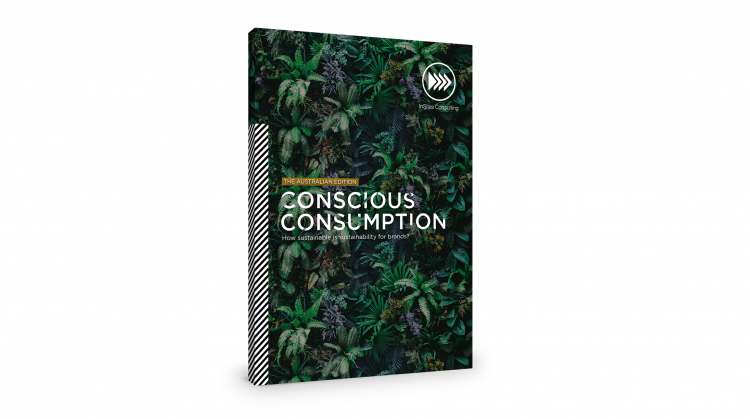The COVID-19 pandemic has heightened the case for sustainability, and more brands need to become drivers of change to overcome the sustainability paradox and create a better planet, society and future.
Global consumer insight agency InSites Consulting identified the key barriers to sustainability amongst Australian consumers in its new Conscious Consumption bookzine, launched today. The report builds upon a two-part proprietary study conducted with Australian consumers, with insightful expert interviews featuring sustainability executives from several industries conducted between July and August 2021.
Erica van Lieven, Managing Partner, InSites Consulting Australia
Erica van Lieven, Managing Partner InSites Consulting Australia said, “We have found through our research that sustainability is a key concern amongst Aussie consumers, and this has only increased with the COVID-19 pandemic. Yet many aren’t acting upon it, resulting in what we can label a ‘sustainability paradox’.”
“As world leaders are urged to take decisive action at the UN Climate Change Conference in Glasgow and Australia’s net-zero ambitions are unveiled, consumers are looking to brands to take action and drive genuine change,” van Lieven added.
Key highlights from the bookzine include:
- A shift from eco-worriers to eco-warriors – research has shown that many Aussie consumers share ‘eco-anxiety’, a feeling of concern about wasting the planet’s resources. The increase in environmental worry has sparked consumers to fight for change, including voting with their wallets. One in four Australian consumers participated in boycotting a brand because they deemed it ‘not sustainable.’
- The pandemic’s impact on the perception of sustainability – Australian consumers found sustainability more important now than before the pandemic. Two-thirds find climate change as important as the COVID-19 crisis. Many consumers say the COVID-19 lockdown made them revalue nature and the importance of clean air.
- Eco-confusion and lack of trust – consumers’ eco-confusion is fuelled by inconsistency in classifying or rating brands’ efforts in supporting people and the planet. Over eight in 10 Australian consumers could not name a single brand when asked to name the most sustainable brand they know, indicating poor communications efforts from brands.
- Bridging the “say-do” gap – barriers to consumers doing more include perceived compromises in affordability, accessibility, performance (where consumers feel they are forced to make a trade-off between sustainability and other valued product attributes) and convenience (the perceived time and effort required).
- Lack of action and genuine drivers of change – Australian consumers believe the government is not doing enough, and believe brands have a responsibility to take care of the planet.
Joeri Van den Bergh, InSites Consulting’s co-founder, NextGen and sustainability expert, weighed in, “Sustainability is not a problem that governments alone can solve; businesses and communities also have to pull their weight. It is a shared responsibility that needs to be addressed today. Brands need to take up their societal role and take consumers along their journey through active and transparent communication. The time for brands to act is now because, in the end, good business is good business.”


















